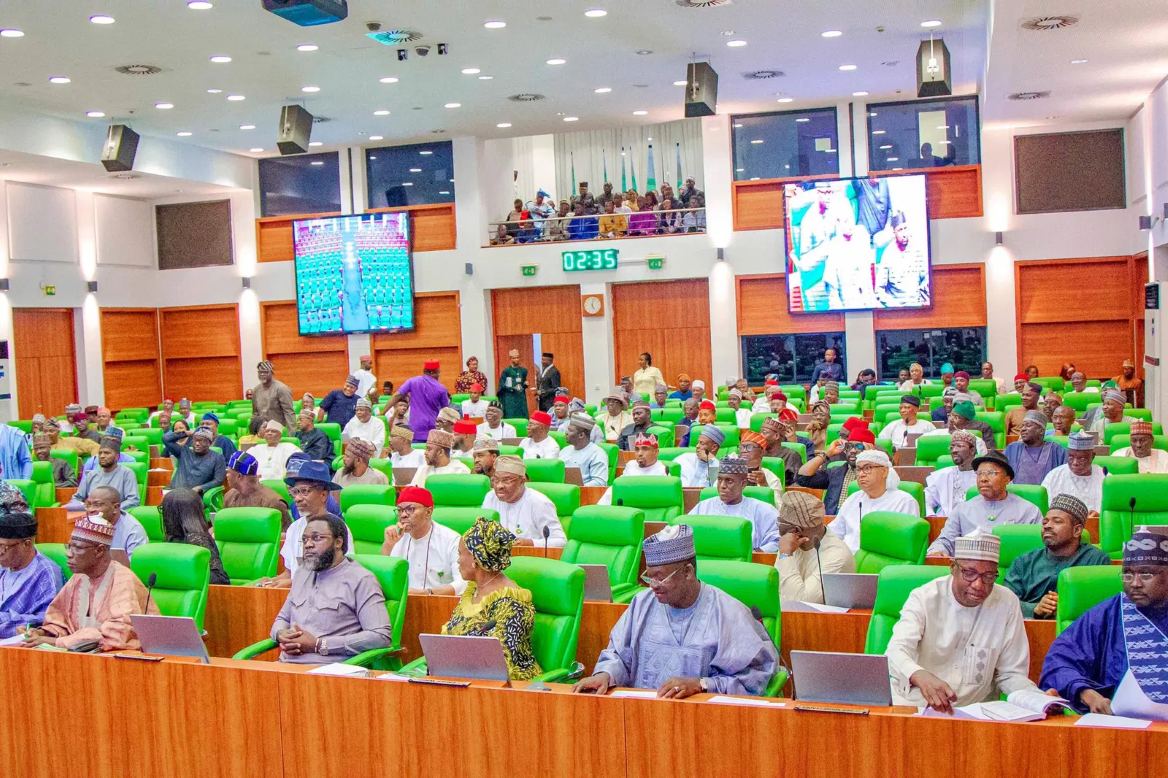NATIONAL NEWS

CONSTITUTION REVIEW: 46 STATE CREATION PROPOSALS FALL SHORT OF KEY CONSTITUTIONAL REQUIREMENTS
As Nigeria moves closer to another round of constitutional amendments, one of the most contentious and emotionally charged issues on the agenda is the renewed call for the creation of new states.
From the oil-rich swamps of the Niger Delta to the expansive landscapes of the North-East, various communities and ethnic groups are advocating for a redrawing of Nigeria’s political boundaries.
The House of Representatives Committee on Constitution Review, chaired by Deputy Speaker Hon. Benjamin Kalu, has officially received 46 separate proposals for state creation, along with 117 submissions for new local government areas (LGAs).
This surge in demands reflects a deep sense of dissatisfaction—from claims of political exclusion and uneven development to calls for administrative reform and cultural recognition.
Nationwide Momentum: Regional Overview of Demands
Despite varying motivations, the desire for new states is one of the few unifying sentiments across Nigeria’s six geopolitical zones.
Committee data reveals that the North-Central region leads with 12 state creation proposals, driven by its diverse ethnic makeup and long-standing concerns over the marginalisation of minority communities—particularly in states like Kogi, Benue, and Plateau.
The South-West follows with eight requests, often framed around preserving cultural identity and decentralising economic governance.
Meanwhile, the South-East and North-East submitted six proposals each. While smaller in number, their demands carry strong political weight, particularly in the South-East, which has the fewest states in the country and has historically argued for equal representation.
Why Nigerians Want New States
The motivations behind these agitations are varied:
Political Exclusion: Minority groups argue that they are often sidelined by dominant ethnic blocs within existing state structures. For instance, the Okun people in Kogi West claim that governance is concentrated in Kogi Central, leaving them politically marginalised.
Governance Access: Supporters argue that large states with far-flung communities make government services inaccessible, especially in rural areas.
Cultural Autonomy: Groups like the Ijebu in Ogun State and Adada in Enugu seek to preserve cultural identity through separate administrative recognition.
Administrative Efficiency: Advocates believe smaller states can deliver public services more effectively and foster localized development.
However, critics caution that these efforts may be driven more by political interests than genuine developmental concerns—pointing to the likelihood of increased federal allocation, more political appointments, and expanded patronage networks.
The Constitutional Hurdles: Section 8's Tough Checklist
Despite the enthusiasm, the legal path to state creation is steep.
Section 8 of the 1999 Constitution outlines five major hurdles:
Endorsement by two-thirds of elected lawmakers (both Senate and House) from the affected areas.
Approval from two-thirds of local government councils and the State Houses of Assembly concerned.
A successful referendum with two-thirds of registered voters in favor.
Simple majority approval from the country’s 36 states.
Two-thirds support from both chambers of the National Assembly.
Deputy Speaker Kalu has confirmed that none of the 46 proposals has met these requirements. Many submissions lacked legislative endorsements, geographical maps, or proof of voter support.
At present, none of the proposals is qualified to proceed to the legislative stage.
Between Political Reality and Legal Constraints
While the constitutional process is rigid, the politics surrounding state creation remain fluid.
Historically, Nigeria’s 36 states were created through military decrees—without referenda or complex legislative hurdles. The last set of new states was added in 1996 under the regime of Gen. Sani Abacha.
This precedent fuels speculation that only a strong political consensus or a future national restructuring dialogue may lead to meaningful change.
Although the current democratic framework exists for state creation, it remains highly impractical under the prevailing rules.
Voices from Parliament: Support, Skepticism, and Caution
Hon. Obi Aguocha (LP, Abia) championed the creation of Aba State, citing its economic potential and historical neglect.
“Aba generates substantial revenue but remains under-administered. Our people deserve better,” he said.
Hon. Usman Zanna (APC, Borno) backed Savannah State from Southern Borno, arguing that difficult terrain and limited access hinder governance.
“A new state will bring governance closer to the people,” he noted.
Hon. Yusuf Gagdi (APC, Plateau) urged due process:
“This is not about noise; it’s about constitutionality. Proposals must meet every requirement.”
Hon. Sada Soli (APC, Katsina) and Hon. Oluwole Oke (PDP, Osun) raised fiscal concerns.
“We’re struggling to fund 36 states already,” Soli warned. Oke added:
“Rather than create more states, let’s empower existing ones through fiscal restructuring.”
Broader Support Across Regions
From the South-South, Hon. Fred Agbedi (PDP, Bayelsa) supported Oil River State, which would unite Ijaw-speaking communities across Bayelsa, Rivers, and Delta.
“It’s about correcting historical injustice and granting the Ijaw people autonomy,” he said.
Hon. Kabiru Rurum (NNPP, Kano) backed Tiga State, a proposed division of Kano State.
“Kano’s size has become an administrative burden. Splitting it will ease governance,” he argued.
The Financial Dilemma: Can Nigeria Afford More States?
Critics warn that creating more states could worsen Nigeria’s fiscal challenges, especially given that over 70% of the national budget goes toward recurrent expenditure—mostly for salaries and administrative costs.
More states would mean more governors, assemblies, commissioners, and bureaucracies—at a time when the country is already burdened by debt, inflation, and reduced revenues.
Supporters counter that smaller, more accountable governance structures—not larger geography—are what drive real development.
What Lies Ahead?
The House Committee on Constitution Review is expected to complete its preliminary evaluation later this year. Only proposals that meet the constitutional criteria will move forward—if any do at all.
Still, the wave of demands highlights a deeper issue: many Nigerians are dissatisfied with the current federal structure.
Whether through new states or wider restructuring, the message is clear—change is needed.
Even if no new states are approved in this cycle, the agitation may lay the groundwork for a broader, long-overdue national conversation on Nigeria’s political and administrative future.
"This represents a significant development in our ongoing coverage of current events."— Editorial Board









